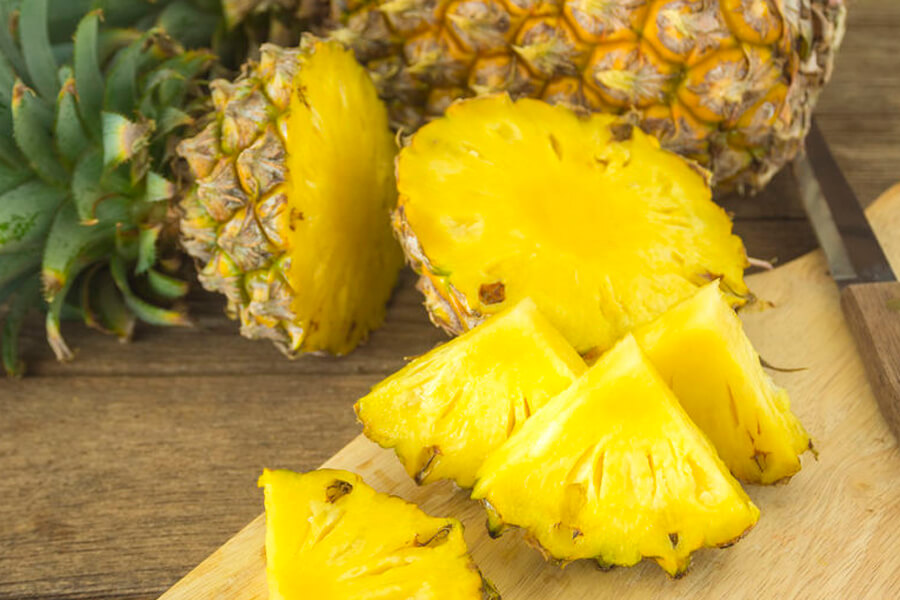Most people with diabetes are aware that certain fruits, such as pineapple, can affect blood sugar more than others. But that doesn’t mean you can’t eat pineapple at all if you have diabetes; the key is moderation.
How fruit affects diabetes
The majority of fruits have little impact on blood sugar compared to foods with a much higher glycemic index (GI) score. That’s because fruit contains fiber and fructose to help the body digest carbs more slowly. This helps blood sugars stabilize over time.
The three general categories of glycemic index are:
• Low: a GI score under 55
• Medium: a GI score between 56-69
• High: a GI score of 70 or above
With a score of 66, raw pineapple falls into the medium-GI category—as do melons, sweetened cranberries, dates and raisins.
But pineapple’s GI score can change, depending on how it’s prepared, how ripe it is and whether it’s raw or canned. Watch out for higher-GI pineapple sources, such as:
• canned pineapple with added sugar
• pineapple juice
• very ripe pineapple
The good news for those with diabetes
Eaten in moderation, there’s no reason to avoid fresh or frozen pineapple. It has plenty of other health benefits, including:
• high in vitamin C
• high in manganese
• fiber
• vitamin A
• vitamin B
• bromelain (helpful in fighting inflammation)
Pairing pineapple with a protein (nuts or beans, for example) or healthy fat can help limit the impact on blood sugar levels.
TIP: Add pineapple to stir fry or grill it to give it extra flavor.
Even if you purchase pineapple juice with no added sugar, it’s not as healthy as eating fresh or frozen pineapple. That’s because not only does the fruit have a lower GI score than the juice, but also whole fruits tend to have more fiber, vitamins and minerals and are more filling than juice.

